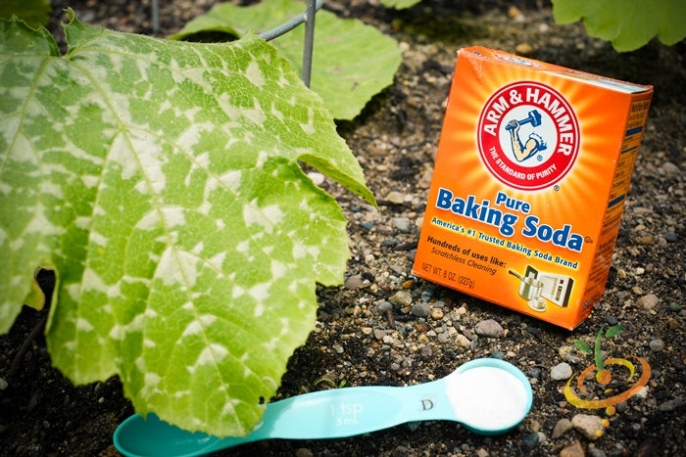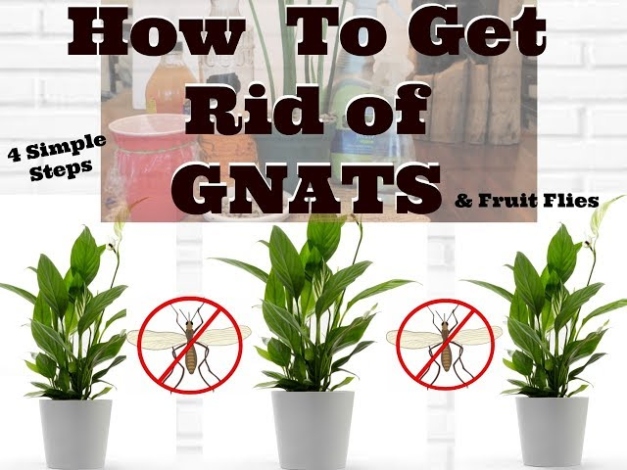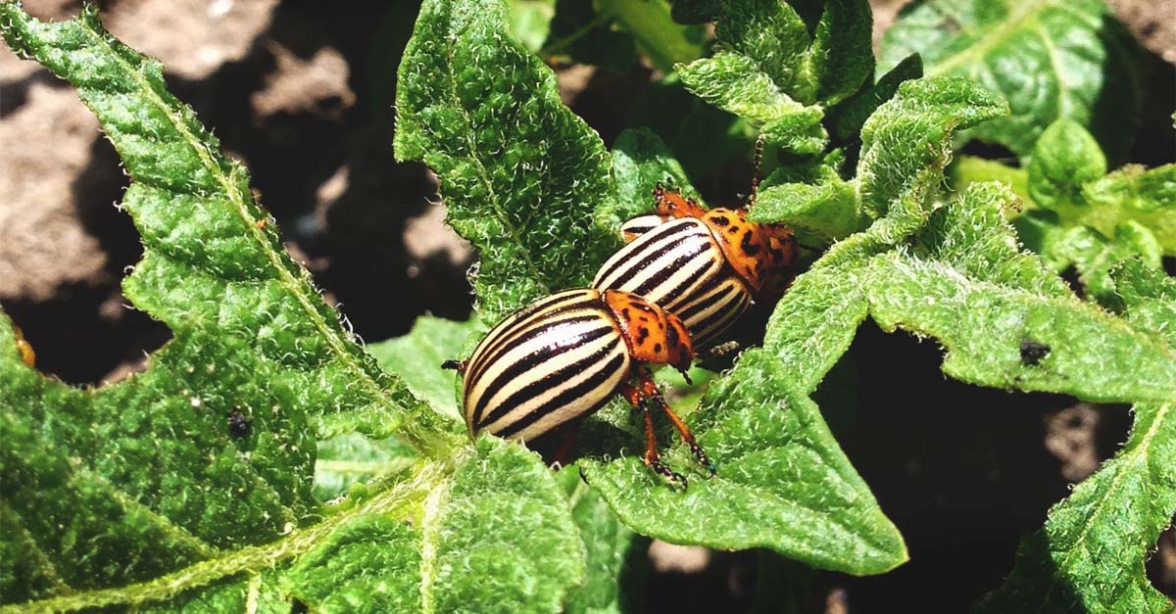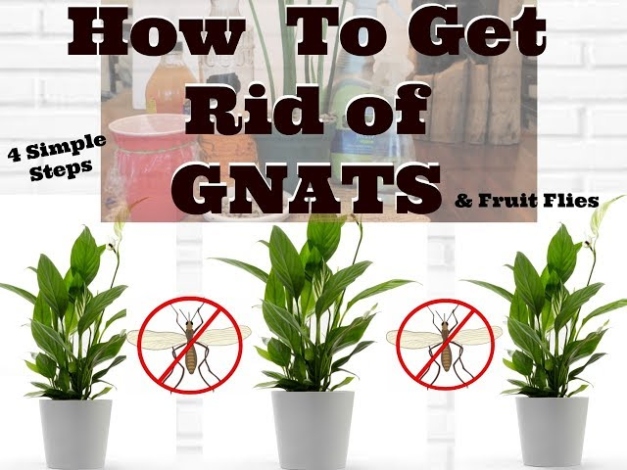Say Goodbye to Garden Pests!
Are you tired of dealing with those pesky Plant flies buzzing around your garden? It’s time to say goodbye to garden pests once and for all! With a few simple tricks and tips, you can eliminate those annoying bugs and enjoy a peaceful, pest-free garden all season long.
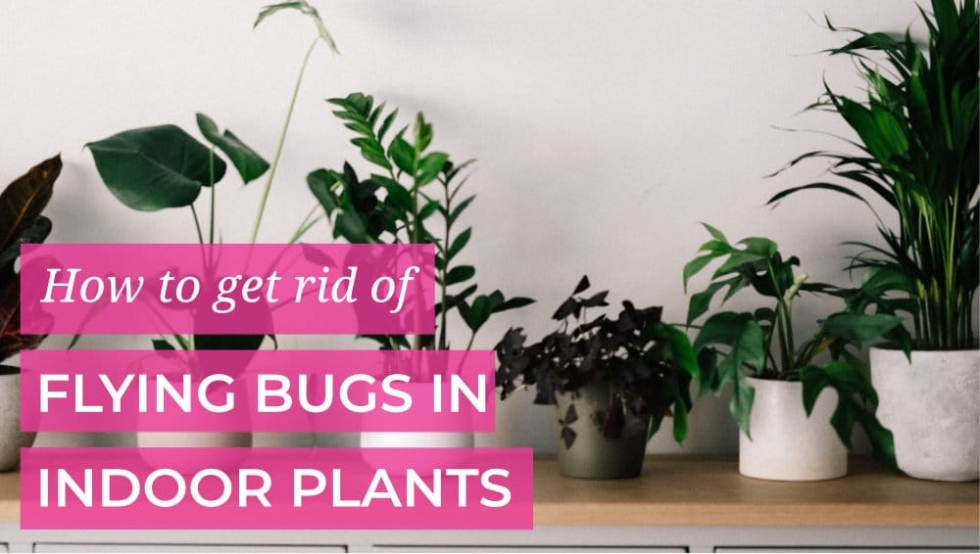
Image Source: loveofdirt.com.au
One of the most effective ways to get rid of plant flies is to create a natural insect repellent. Mix together equal parts water and vinegar in a spray bottle, and add a few drops of dish soap. Shake well and spray the mixture onto your plants. The vinegar will repel the flies, while the dish soap will help the solution stick to the leaves.
Another great way to combat plant flies is to attract natural predators to your garden. Ladybugs, lacewings, and parasitic wasps are all excellent at controlling insect populations. Plant flowers like marigolds, daisies, and sunflowers to attract these beneficial insects to your garden.
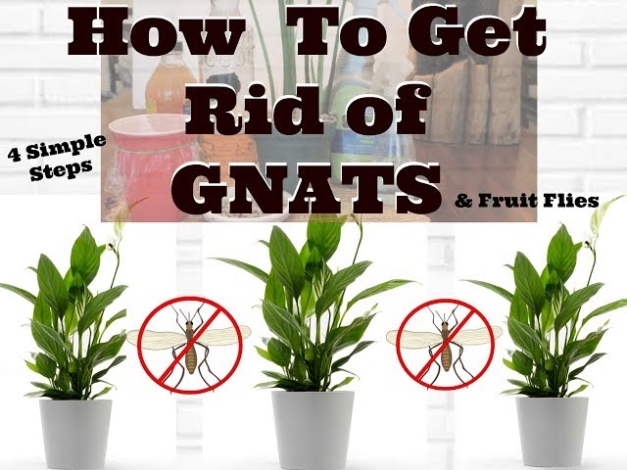
Image Source: ytimg.com
If you’re dealing with a particularly stubborn infestation, consider using neem oil. This natural insecticide is safe for plants and can help control a wide range of garden pests, including plant flies. Simply mix a few drops of neem oil with water and spray it onto your plants.
In addition to these natural remedies, there are a few simple steps you can take to prevent plant flies from infesting your garden in the first place. Make sure to keep your garden clean and free of debris, as plant flies are attracted to decaying organic matter. Remove any dead or dying plants, and regularly prune and fertilize your garden to keep it healthy and strong.
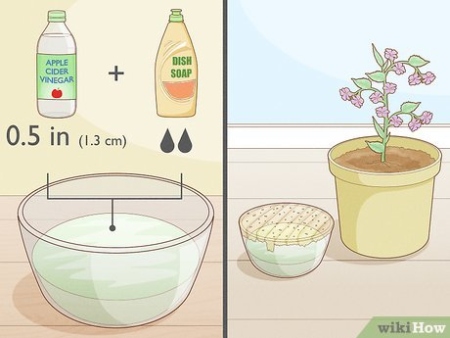
Image Source: wikihow.com
Finally, don’t forget to water your plants properly. Overwatering can create the perfect breeding ground for plant flies, so make sure to water your plants only when they need it. Allow the soil to dry out slightly between waterings to discourage pests from taking up residence in your garden.
By following these tips and tricks, you can say goodbye to garden pests and enjoy a beautiful, bug-free garden all season long. So grab your spray bottle, unleash your inner bug warrior, and get ready to buzz off those pesky plant flies!
The Battle Against Pesky Plant Flies
Plant flies can be a real nuisance in any garden or indoor plant collection. These pesky little insects can quickly multiply and wreak havoc on your precious plants if not dealt with promptly. But fear not, dear plant enthusiasts, for we are here to arm you with the ultimate guide to eliminating those annoying plant flies once and for all!
First things first, it’s important to identify the type of plant flies you are dealing with. There are several common types of plant flies, including fungus gnats, fruit flies, and whiteflies. Each of these pests has its own unique characteristics and behaviors, so it’s essential to know what you’re up against before you can effectively combat them.
Fungus gnats are small, black flies that are commonly found in moist soil. They are attracted to decaying organic matter and can quickly infest your plant pots if left unchecked. Fruit flies, on the other hand, are tiny insects that are attracted to ripe fruits and vegetables. They can easily find their way into your Home and lay eggs on your plants, leading to a rapid infestation. Whiteflies are small, white insects that feed on plant sap and can cause significant damage to your plants if not controlled.
Now that you have identified the type of plant flies you are dealing with, it’s time to take action! The first step in eliminating plant flies is to remove any decaying organic matter from your plant pots. This includes dead leaves, overripe fruits, and any other organic material that may attract flies. By keeping your plant pots clean and free of debris, you can significantly reduce the risk of a plant fly infestation.
Next, consider using natural remedies to combat plant flies. One popular method is to create a homemade fly trap using apple cider vinegar and dish soap. Simply fill a small container with apple cider vinegar and add a few drops of dish soap. The flies will be attracted to the vinegar and will drown in the soapy solution. You can also try placing sticky traps around your plants to capture flying insects.
In addition to natural remedies, there are also several commercial insecticides available that can help eliminate plant flies. Look for products that are specifically designed to target the type of plant fly you are dealing with, whether it be fungus gnats, fruit flies, or whiteflies. Be sure to follow the instructions on the label Carefully and use the insecticide as directed to avoid harming your plants.
Another effective way to prevent plant fly infestations is to improve the overall health of your plants. Healthy, well-nourished plants are less likely to attract pests, so be sure to provide your plants with the proper nutrients, water, and sunlight they need to thrive. Avoid overwatering your plants, as this can create a moist environment that is ideal for fungus gnats and other plant flies.
In conclusion, the battle against pesky plant flies can be won with a combination of natural remedies, commercial insecticides, and proper plant care. By identifying the type of plant flies you are dealing with, taking proactive measures to eliminate them, and maintaining the health of your plants, you can effectively rid your garden of these annoying pests. So gear up, plant warriors, and let’s show those plant flies who’s boss!
Unleash Your Inner Bug Warrior
As gardeners, we encounter all sorts of challenges when it comes to maintaining our Plants. From unruly weeds to pesky plant flies, it seems like there is always something trying to sabotage our hard work. But fear not, fellow plant enthusiasts, for there is a way to combat these bothersome bugs and unleash your inner bug warrior!
First and foremost, it’s important to understand your enemy. Plant flies, also known as fungus gnats, are small, flying insects that are attracted to damp soil and decaying plant matter. They lay their eggs in the soil, which hatch into larvae that feed on the roots of your plants. These pests can quickly multiply and cause damage to your beloved greenery if left unchecked.
But fret not, for you have the power to fend off these pesky invaders! The key to becoming a bug warrior lies in prevention and control. Here are some strategies to help you in your battle against plant flies:
1. Keep your soil dry: Plant flies thrive in moist environments, so be sure to allow the top layer of your soil to dry out between waterings. This will help deter the flies from laying their eggs in your plant pots.
2. Use yellow sticky traps: Plant flies are attracted to the color yellow, so placing sticky traps around your plants can help catch these pests before they have a chance to reproduce. Change the traps regularly to ensure maximum effectiveness.
3. Introduce beneficial nematodes: These microscopic worms are natural predators of fungus gnat larvae and can be applied to the soil to help control the population of these pests. Simply water the nematodes into the soil according to the instructions on the package.
4. Neem oil spray: Neem oil is a natural insecticide that can help repel plant flies and other pests. Mix a small amount of neem oil with water and spray it onto the soil and foliage of your plants to deter these unwanted visitors.
5. Improve air circulation: Plant flies are more likely to infest plants in stagnant, humid conditions. Increase air circulation in your garden by using a fan or opening windows to help prevent these pests from taking hold.
6. Quarantine infested plants: If you notice plant flies in one of your pots, quickly remove the affected plant and place it in quarantine away from your other plants. This will help prevent the infestation from spreading.
By implementing these strategies and unleashing your inner bug warrior, you can effectively combat plant flies and protect your garden from these pesky pests. Remember, persistence is key in the fight against unwanted invaders, so stay vigilant and keep up with your pest control efforts. With determination and a little bit of know-how, you can successfully defend your plants and enjoy a thriving, bug-free garden. So suit up, fellow bug warriors, and let’s show those plant flies who’s boss!
Buzz Off: Your Essential Guide
Do you love spending time in your garden, but find yourself constantly battling annoying Plant flies? If so, you’re not alone! These pesky insects can quickly turn a peaceful gardening session into a frustrating ordeal. But fear not, because we have the ultimate guide to help you eliminate those pesky plant flies once and for all.
Understanding Plant Flies
Before we dive into how to get rid of plant flies, it’s important to understand what they are. Plant flies, also known as fungus gnats, are tiny insects that are attracted to damp soil and decaying plant matter. They lay their eggs in the soil, where the larvae feed on organic material and plant roots. This can lead to stunted growth, yellowing leaves, and even plant death if left unchecked.
Preventing Plant Flies
The best way to deal with plant flies is to prevent them from infesting your garden in the first place. Here are some tips to help keep these pesky insects at bay:
– Use a well-draining soil mix to prevent excess moisture, which attracts plant flies.
– Avoid overwatering your plants, as damp soil is a breeding ground for fungus gnats.
– Keep your garden clean and free of decaying plant matter, which can attract plant flies.
– Use yellow sticky traps to catch adult plant flies before they have a chance to lay eggs.
Eliminating Plant Flies
If you already have a plant fly infestation, don’t worry – there are several methods you can use to get rid of them:
– Neem oil: This natural insecticide is effective at killing plant flies and their larvae without harming your plants.
– Diatomaceous earth: Sprinkle this powdery substance on the soil surface to kill plant fly larvae as they emerge.
– Beneficial nematodes: These microscopic organisms can be added to the soil to prey on plant fly larvae.
– Hydrogen peroxide: Mix one part hydrogen peroxide with four parts water and drench the soil to kill plant fly larvae.
Creating a Fly-Free Garden
Now that you’ve gotten rid of those pesky plant flies, it’s time to ensure they don’t come back. Here are some tips for creating a fly-free garden:
– Choose plants that are less susceptible to plant fly infestations, such as succulents and cacti.
– Place a layer of sand or gravel on top of the soil to discourage plant flies from laying eggs.
– Use a fan to increase air circulation in your garden, which can help prevent plant flies from landing on your plants.
– Keep your garden well-maintained and free of clutter, as plant flies are attracted to decaying plant matter.
Enjoying Your Pest-Free Garden
With these tips and tricks, you can say goodbye to those pesky plant flies and enjoy a beautiful, pest-free garden. Remember to stay vigilant and take preventative measures to ensure that plant flies don’t return. Happy gardening!
how to get rid of plants flies







